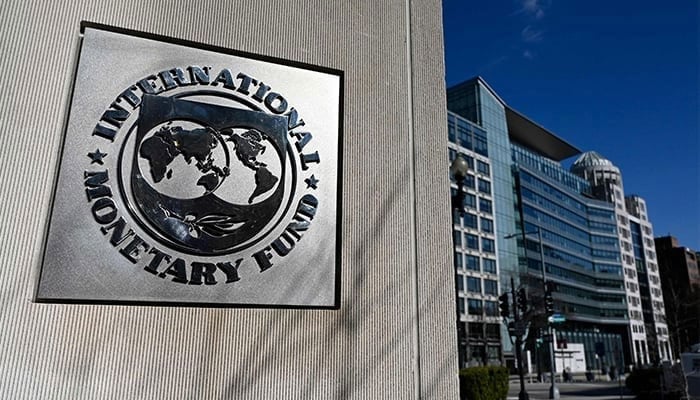For IMF’s $8bn loan programme: Rs129bn gas subsidies for consumers set to end by June
The government would re-engage the IMF on its circular debt reduction plan which the Fund on February 12, 2024 rejected
ISLAMABAD: The government is required to do away with the cross-subsidy of Rs100 billion being provided to protected gas consumers and a subsidy of Rs29 billion being given to the consumers in the head of RLNG diversion by June 2024 along with the submission of circular debt redressal plan for qualifying for the new $8 billion IMF Extended Fund Facility (EFF) program loan, a senior official of the Energy Ministry told The News.
“More importantly, under other prerequisites, the Petroleum Division functionaries are also needed to come up with the audit report of Sui Southern by June 2024, as to why it is facing losses and has virtually become a loss-making entity. In addition, the Energy Ministry also needs to deposit with the fund the circular debt redressal plan in the gas sector, which stands at Rs2.9 trillion.”
In addition, the official said: “The government has to shift the industry based on captive power plants onto the national grid by December 2024. IMF also wants the introduction of weighted average cost of gas (WACOG), which the government has made part of the revenue requirement of gas companies when it comes to recovery of RLNG diversion cost from domestic consumers. IMF also wanted the withdrawal of gas subsidy from the fertilizer sector, which the government has taken away from February 1, 2024. However, the government will also end the cheaper gas from Mari Gas to three plants of FFC and two plants of Fatima Fertilizers later on.”
The official said: “This time government has increased the gas tariff for the protected domestic consumers by 40 to 65.29 percent from February 1, 2024, to reduce the cross-subsidy. There is still space to increase their tariff ensuring their affordability. However, the IMF wants the vulnerable class should be protected with affordable tariffs unless an alternative mechanism is adopted through the BISP program. We have to give IMF the plan under which protected consumers would be given the subsidy through BISP (Benazir Income Support Program) or another mechanism to charge them the full gas cost to end the cross-subsidy.”
The subsidy of Rs29 billion is being given by the government in the head of RLNG diversion to the domestic sector, he said, adding, “The government will end this subsidy for the next financial year 2024-25 as RLNG diversion cost will be recovered from domestic consumers through WACOG (weighted average cost of gas) mode, which has now become part of the estimated revenue requirement of the gas companies.”
About the circular debt redressal plan, the official said that in the gas sector, it has reached Rs2.9 trillion and with the increase from November 1, 2023, and February 1, 2024, the monthly flow in the existing debt has stopped and the IMF wants the government to ensure the enforcement of biannual determinations about gas prices to stop more increase in the circular debt, but the government has been asked to submit the circular debt stock reduction plan. The government would re-engage the IMF on its circular debt reduction plan which the Fund on February 12, 2024 rejected.
Mentioning the demand of the IMF about Sui Southern, the official said that the Fund wants the audit report of said gas company by June 2024 to know why it has virtually become a loss-making entity.
-
 Pal Reveals Prince William’s ‘disorienting’ Turmoil Over Kate’s Cancer: ‘You Saw In His Eyes & The Way He Held Himself’
Pal Reveals Prince William’s ‘disorienting’ Turmoil Over Kate’s Cancer: ‘You Saw In His Eyes & The Way He Held Himself’ -
 Poll Reveals Majority Of Americans' Views On Bad Bunny
Poll Reveals Majority Of Americans' Views On Bad Bunny -
 Wiz Khalifa Thanks Aimee Aguilar For 'supporting Though Worst' After Dad's Death
Wiz Khalifa Thanks Aimee Aguilar For 'supporting Though Worst' After Dad's Death -
 Man Convicted After DNA Links Him To 20-year-old Rape Case
Man Convicted After DNA Links Him To 20-year-old Rape Case -
 Royal Expert Shares Update In Kate Middleton's Relationship With Princess Eugenie, Beatrice
Royal Expert Shares Update In Kate Middleton's Relationship With Princess Eugenie, Beatrice -
 Andrew Mountbatten-Windsor’s Leaves King Charles With No Choice: ‘Its’ Not Business As Usual’
Andrew Mountbatten-Windsor’s Leaves King Charles With No Choice: ‘Its’ Not Business As Usual’ -
 Dua Lipa Wishes Her 'always And Forever' Callum Turner Happy Birthday
Dua Lipa Wishes Her 'always And Forever' Callum Turner Happy Birthday -
 Police Dressed As Money Heist, Captain America Raid Mobile Theft At Carnival
Police Dressed As Money Heist, Captain America Raid Mobile Theft At Carnival -
 Winter Olympics 2026: Top Contenders Poised To Win Gold In Women’s Figure Skating
Winter Olympics 2026: Top Contenders Poised To Win Gold In Women’s Figure Skating -
 Inside The Moment King Charles Put Prince William In His Place For Speaking Against Andrew
Inside The Moment King Charles Put Prince William In His Place For Speaking Against Andrew -
 Will AI Take Your Job After Graduation? Here’s What Research Really Says
Will AI Take Your Job After Graduation? Here’s What Research Really Says -
 California Cop Accused Of Using Bogus 911 Calls To Reach Ex-partner
California Cop Accused Of Using Bogus 911 Calls To Reach Ex-partner -
 AI Film School Trains Hollywood's Next Generation Of Filmmakers
AI Film School Trains Hollywood's Next Generation Of Filmmakers -
 Royal Expert Claims Meghan Markle Is 'running Out Of Friends'
Royal Expert Claims Meghan Markle Is 'running Out Of Friends' -
 Bruno Mars' Valentine's Day Surprise Labelled 'classy Promo Move'
Bruno Mars' Valentine's Day Surprise Labelled 'classy Promo Move' -
 Ed Sheeran Shares His Trick Of Turning Bad Memories Into Happy Ones
Ed Sheeran Shares His Trick Of Turning Bad Memories Into Happy Ones




